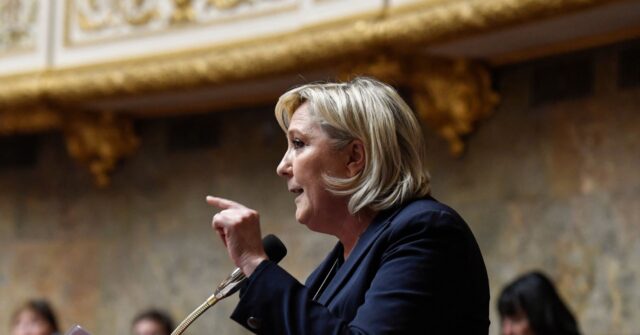The budgetary battle in France has emerged as a significant challenge for newly appointed Prime Minister Michel Barnier, as his proposals for austerity measures have garnered opposition from both Marine Le Pen’s populist faction and the far-left New Popular Front. In the face of mounting economic pressures characterized by skyrocketing debt levels and persistent budget deficits, Barnier laid out plans before the National Assembly, which include a staggering 60 billion euros in tax hikes and spending reductions aimed at stabilizing the country’s finances. This situation reflects the broader economic calamity France is confronting, which has been exacerbated by the ongoing ramifications of the COVID-19 pandemic and the energy crisis linked to the war in Ukraine.
The government’s austerity measures are pitched as temporary emergency responses, targeting the wealthiest segment of the population. Specifically, Barnier’s proposals suggest raising taxes on approximately 24,000 affluent households and around 400 major corporations. However, the burden is expected to extend beyond just businesses and wealthy individuals, as the plans also include tax hikes on essential services such as electricity, automobiles, and air travel. Additionally, the government proposes freezing state pension increases and cutting medical reimbursements for citizens, effectively placing a heavier financial load on the general populace while exempting the defense budget from cuts amid ongoing military commitments related to the Ukraine conflict.
These fiscal measures come at a critical juncture where France is at risk of exceeding the European Union’s budget deficit limit of 3 percent of GDP, with current figures showing a deficit of over €154 billion, around 5.5 percent, and projections suggesting it could escalate to 6.1 percent. The national debt has also spiraled to over €3 trillion, surpassing the country’s entire GDP, primarily driven by expansive spending during the pandemic and the need for energy security amid the ongoing European energy crisis. This situation places tremendous pressure on Barnier’s government, newly established in September, which follows a difficult electoral struggle where his and President Macron’s parties were outperformed by Le Pen’s National Rally and the leftist New Popular Front coalition.
With potential instability looming, Barnier finds his government holding what could be described as a “Sword of Damocles,” as Le Pen’s National Rally retains the power to influence government stability with the option of supporting a censure motion against the Prime Minister. Although Le Pen and her allies have currently opted to allow Barnier time to govern, they have not dismissed the potential for future action against his administration should key issues remain unresolved. National Rally member Jean-Philippe Tanguy indicated that should no fundamental changes occur in the government’s budget approach, the consideration of a censure motion would become inevitable, signaling a possible shift in parliamentary alliances.
Responding to the current budget proposals, the National Rally is staunchly opposed, particularly expressing objections to the proposed tax hikes on essential goods like electricity and gas, which they argue would disproportionately harm the working class. RN President Jordan Bardella encapsulated this sentiment, criticizing the budget as one that essentially “picks the pockets” of everyday French citizens, suggesting instead that the government should impose taxes on foreign entities and increase taxation on financial maneuvers like share buybacks. Meanwhile, the leftist New Popular Front coalition also underscores their opposition, demanding even larger tax increases on oil and gas corporations, asserting that the current budget does not sufficiently address the needs of the working populace.
Amid widespread dissent across the political spectrum, approximately 1,700 amendments to the proposed budget were submitted in Parliament, indicating the contention surrounding the plan. Despite this turbulent political landscape, Barnier retains pathways to implement the budget without parliamentary approval by invoking Article 49.3 of the French constitution, a contentious measure that enables the Prime Minister to pass legislation without a vote. This option has historically sparked backlash, as seen in 2023 when it led to widespread protests during the government of Élisabeth Borne, ultimately contributing to her departure from office.
A vote of no confidence in Barnier remains the only way to obstruct the potential use of Article 49.3; however, this requires collaboration between the National Rally and the New Popular Front, complicating the prospect of a unified opposition front. Furthermore, the situation is exacerbated by Macron’s inability to initiate new legislative elections until June of the following year, adding uncertainty to France’s political landscape. Should Barnier’s administration face a no-confidence vote, it could potentially leave France in a governance vacuum, further delaying necessary solutions to the ongoing budget crisis and exacerbating economic uncertainties for the country.

